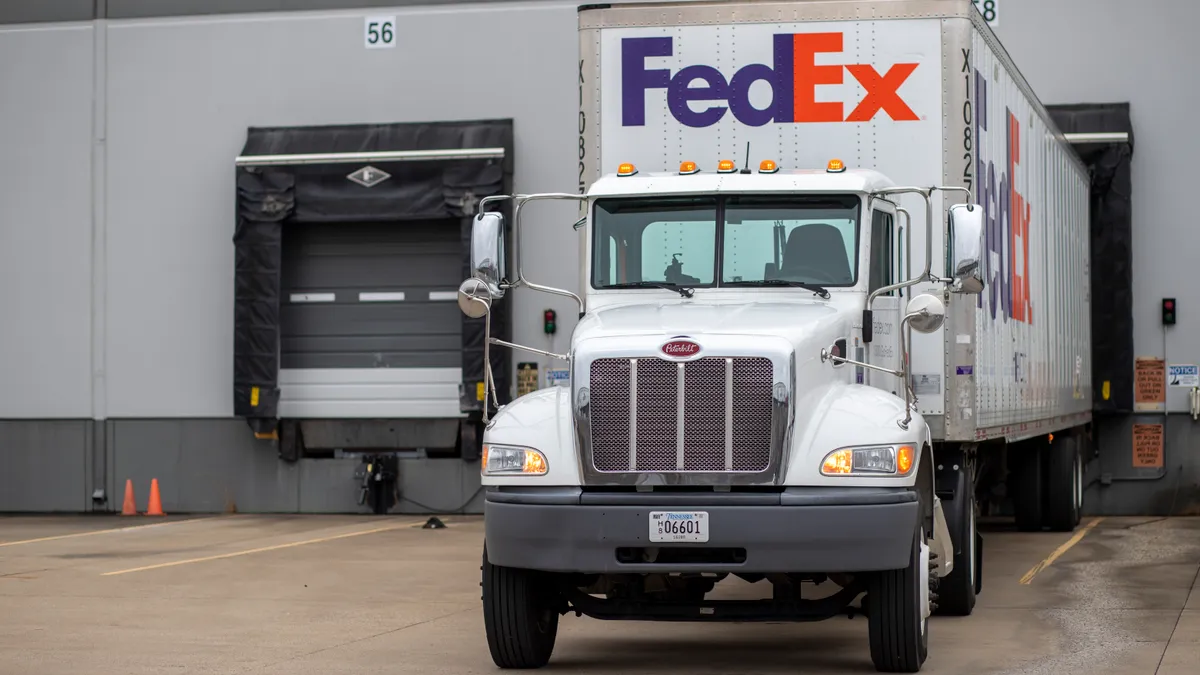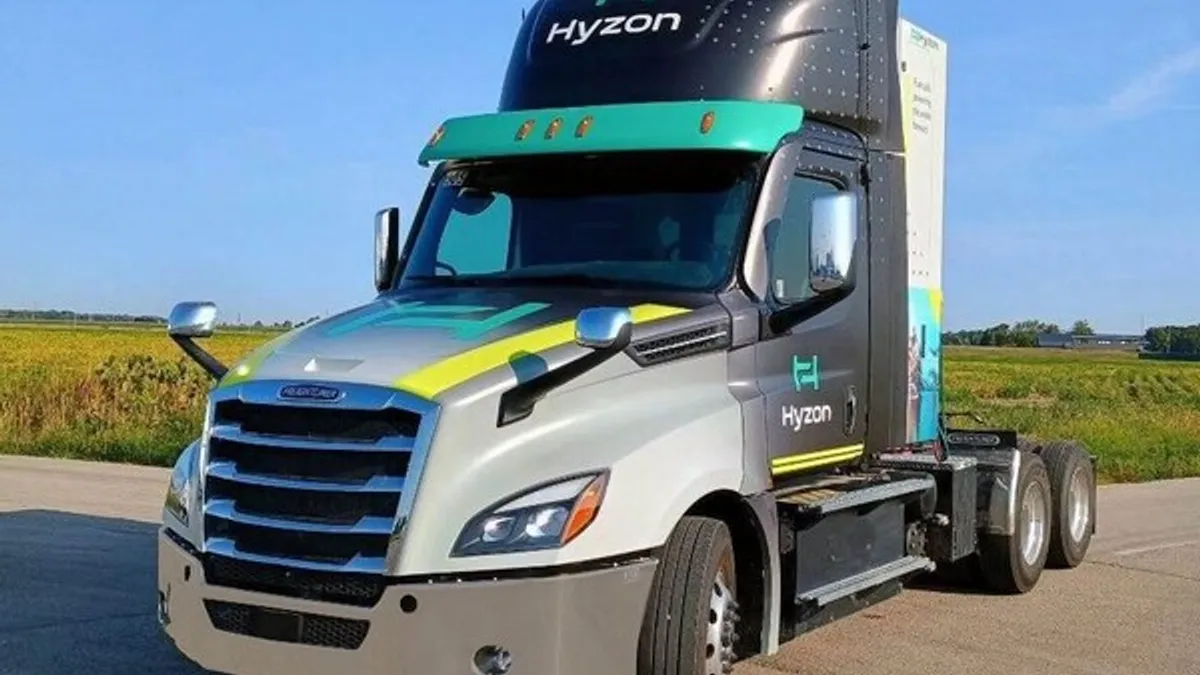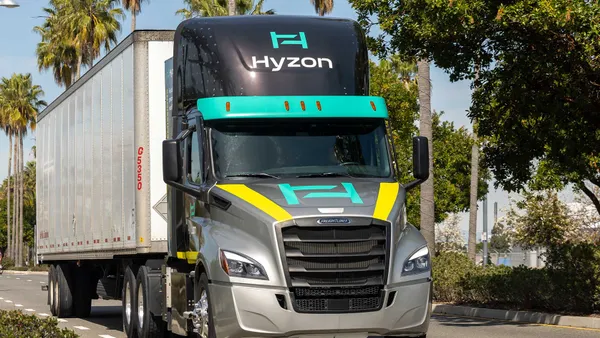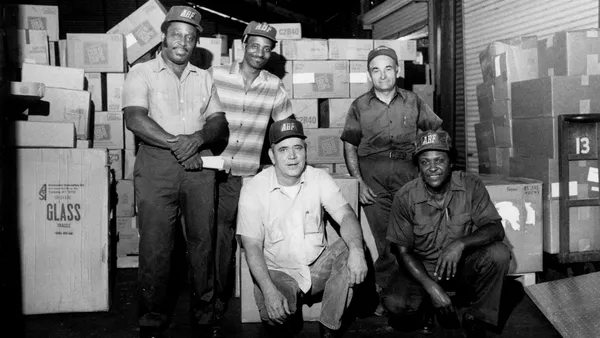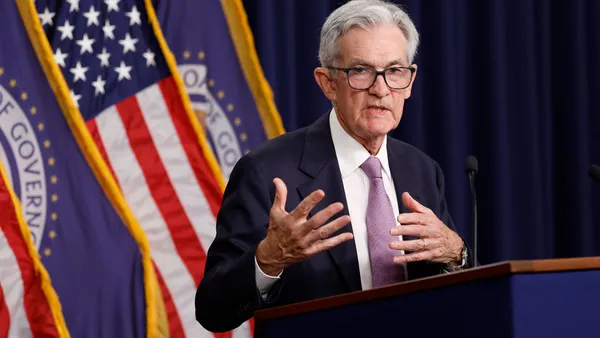Dive Brief:
- Old Dominion Freight Line is trying to figure out how it could comply with a federal vaccine mandate, should one be implemented on the trucking industry. “We’d love to have some clear line of sight as to exactly ... what’s coming down the line,” CEO Greg Gantt said during an earnings call Wednesday.
- One of the toughest aspects of the mandate for the LTL would be the weekly coronavirus testing required for employees who refuse the vaccine, Gantt said. “I don’t want to say ‘impossible,’ but there’s some challenges that I think are going to be very difficult, if it comes to that,” he said, considering the large number of employees.
- Gantt said he hopes the American Trucking Associations will have success lobbying for an exemption for the industry from such a mandate. ATA CEO Chris Spear wrote a letter on Oct. 21 to Acting Administrator of the Office of Information and Regulatory Affairs Sharon Block making multiple mandate-related requests.
Dive Insight:
A federal vaccine mandate would affect more than just truck drivers. But with labor constraints pegged at historic levels and supply chains facing major throughput issues, the possibility of a mandate pushing drivers off payrolls is top of mind among trucking executives.
Coronavirus infection rates and mortality rates among truck drivers are “extraordinary low,” which “shouldn’t come as a surprise to anybody, including the [Biden] administration,” Spear said during a panel at ATA’s Management Conference & Exhibition in Nashville on Tuesday.
That’s because they’re isolated in a cab, he said. Independence is one aspect of the job that attracts people, which is reflected in the number of drivers who said they would not get the vaccine, Spear said.
“If it’s mandated, they would actually leave that employer” if told to get vaccinated, he said.
No mandate has been codified yet. But the Occupational Safety and Health Administration has been developing the temporary emergency standard, which would require all employers with 100 or more employees to ensure their workforces are fully vaccinated against COVID-19, or require any unvaccinated workers to have a negative test result weekly before coming into work.
Gantt noted Old Dominion did offer employees an incentive to get vaccinated about four months ago. Despite having “some success with that,” he said, he would prefer if the situation doesn’t result in a mandate.
“God help our industry, if it does,” he said.
Executives at other large carriers, including U.S. Xpress and Werner, have expressed a similar opinion of being pro-vaccine but anti-mandate. Many specifically take issue with the fact that the mandate would apply only to companies with more than 100 employees, meaning small carriers and owner-operators would not have to comply.
ATA’s letter requests an exemption from a vaccine mandate for drivers, similar to one Canada implemented for its drivers — or an exemption from OSHA’s mandate and transfer such mandate jurisdiction instead to an agency that has expertise in transportation. It also asks for a timeline of at least 90 days to comply with any mandate.
ATA also said in the letter that, if the administration doesn’t address its concerns, the group will “take additional action” against a mandate.
“We would much prefer to work with federal authorities to figure out how we can get more truck drivers voluntarily vaccinated, which would be good for public health and not cause additional harm to vital supply chains,” the letter reads.
Public opinion appears to be split on the idea of vaccine mandates, in general. A Gallup poll from September showed 58% of respondents support requiring companies with 100 or more employees to have all their employees vaccinated against COVID-19, or be tested weekly for it.
The trucking industry appears to be united on the issue, however. According to Land Line, the Owner-Operator Independent Drivers Association has thrown support behind a bill from Sen. Marsha Blackburn, a Republican from Tennessee. Introduced Tuesday, the Keeping our COVID-19 Heroes Employed Act would exempt essential workers from being fired due to a vaccine mandate.
Correction: A previous version misstated the size of the businesses required to comply with the mandate. It applies to firms with 100 or more employees.




